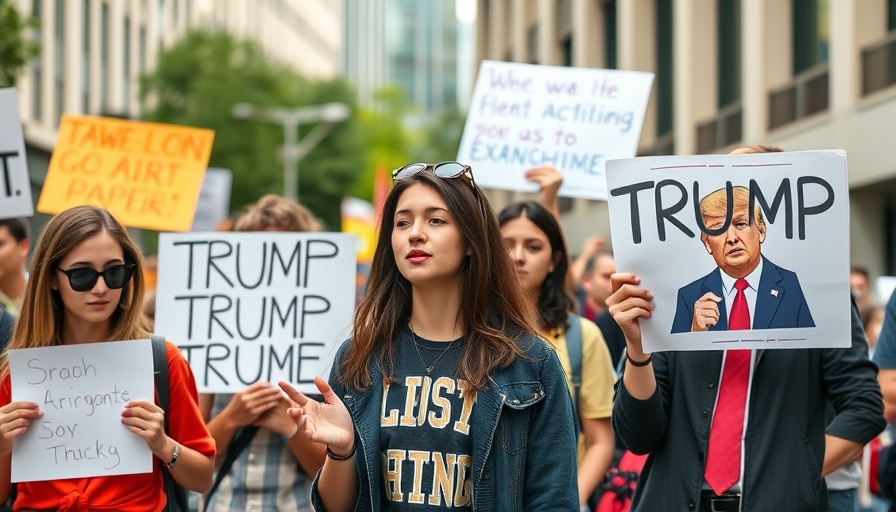
Exploring Democracy Amidst Political Unrest
The upcoming semester at George Mason University offers a course titled "Trump and the Crisis of Democracy," which aims to analyze the state of American democracy during the potential second term of Donald Trump. This course is part of a larger trend in higher education where political themes are explored in-depth, particularly ones that resonate with current sociopolitical climates. The inclusion of such a class at a prominent institution reflects the ongoing divisive nature of U.S. politics, where educational institutions are seen as arenas for both discourse and activism.
Why this Course Matters Now
Given the current landscape of political uncertainty, the course seeks to arm students with critical perspectives on the dynamics affecting democracy. With the specter of issues like voting rights, legislative reforms, and the impact of misinformation, understanding the intersection of these elements has never been more essential. This class not only enhances academic engagement but also allows students to grapple with real-world consequences of political choices in the present-day America.
Faculty Insights and Curriculum Focus
Under the guidance of renowned faculty experts, students will engage with varied interpretations of democracy, exploring themes such as civil rights, political representation, and the role of the media. This curriculum leap signals a commitment to fostering educated citizenship—one that encourages students to analyze their roles in shaping democratic processes. Educators within the course have emphasized a comprehensive approach that respects diverse opinions while challenging students to think critically about their own values and beliefs.
Responses from Students and the Community
The announcement of this course has spurred mixed reactions among students and local communities. Some appreciate the opportunity to examine pressing political issues through an academic lens, eager to prepare for active participation in democratic processes. Conversely, critics argue that the course promotes a particular political ideology, questioning the impartiality of educational environments. These sentiments highlight the broader discourse around academia's role in political education and activism, intensifying as electoral cycles heat up.
Implications for Other Institutions
This innovative course at George Mason may inspire similar offerings across various universities nationwide, especially during election periods. As educational institutions increasingly recognize their responsibilities in shaping informed citizens, courses addressing contemporary concerns could become standard fare in political science curricula. Observing how these courses influence student voter engagement and activism in upcoming electoral processes could yield significant insights.
Conclusion: The Power of Education in Democracy
Educational initiatives like the Trump-themed class highlight the power of academic discourse in a struggling democracy. As the political environment grows ever more charged, courses that examine current events and encourage critical thinking are pivotal in fostering a stronger, more informed electorate. Engaging in meaningful discussions about democracy may be one of the most effective paths to ensuring its preservation in the U.S. political landscape.
 Add Element
Add Element  Add Row
Add Row 



 Add Row
Add Row  Add
Add 


Write A Comment